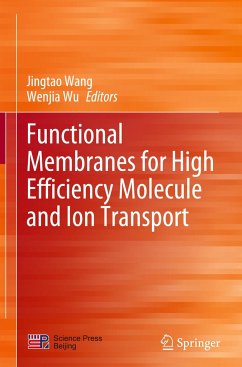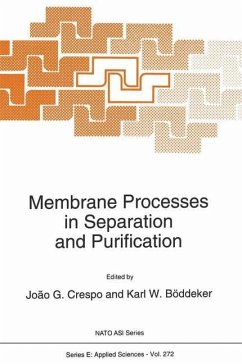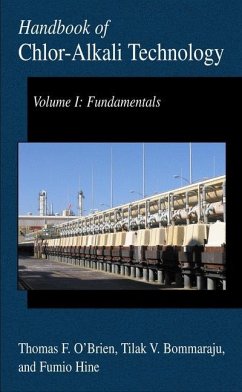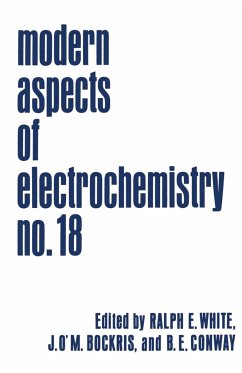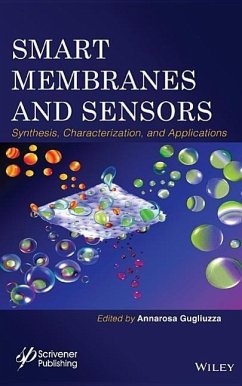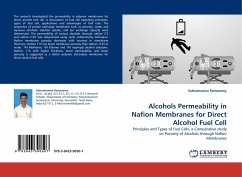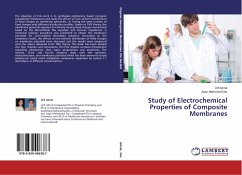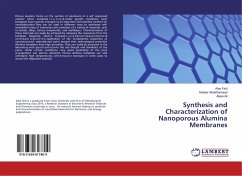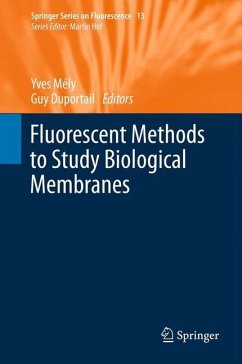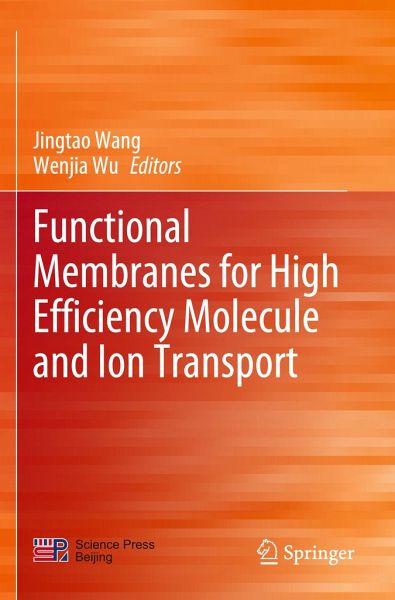
Functional Membranes for High Efficiency Molecule and Ion Transport
Versandkostenfrei!
Versandfertig in 6-10 Tagen
113,99 €
inkl. MwSt.

PAYBACK Punkte
57 °P sammeln!
This book provides an overview of functional membranes for efficient ion/molecule transfer and separation. It first presents the design, fabrication, structure, and performance of several kinds of membranes. Then, the application of membrane technology in organic solvent nanofiltration, hydrogen fuel cells, and solid-state lithium batteries is introduced. Furthermore, the book proposes strategies of strengthening the ion/molecular-level separation and transfer process in membrane processes. It also analyzes the development status, existing problems, and optimization methods in the field of mem...
This book provides an overview of functional membranes for efficient ion/molecule transfer and separation. It first presents the design, fabrication, structure, and performance of several kinds of membranes. Then, the application of membrane technology in organic solvent nanofiltration, hydrogen fuel cells, and solid-state lithium batteries is introduced. Furthermore, the book proposes strategies of strengthening the ion/molecular-level separation and transfer process in membrane processes. It also analyzes the development status, existing problems, and optimization methods in the field of membranes and membrane processes. Finally, it highlights the construction strategy of membrane structures, the structure-performance relationships as well as the transfer and separation mechanisms. The target group of this book is academics and researchers in materials science, chemical engineering, biomedical engineering, and other related fields.



